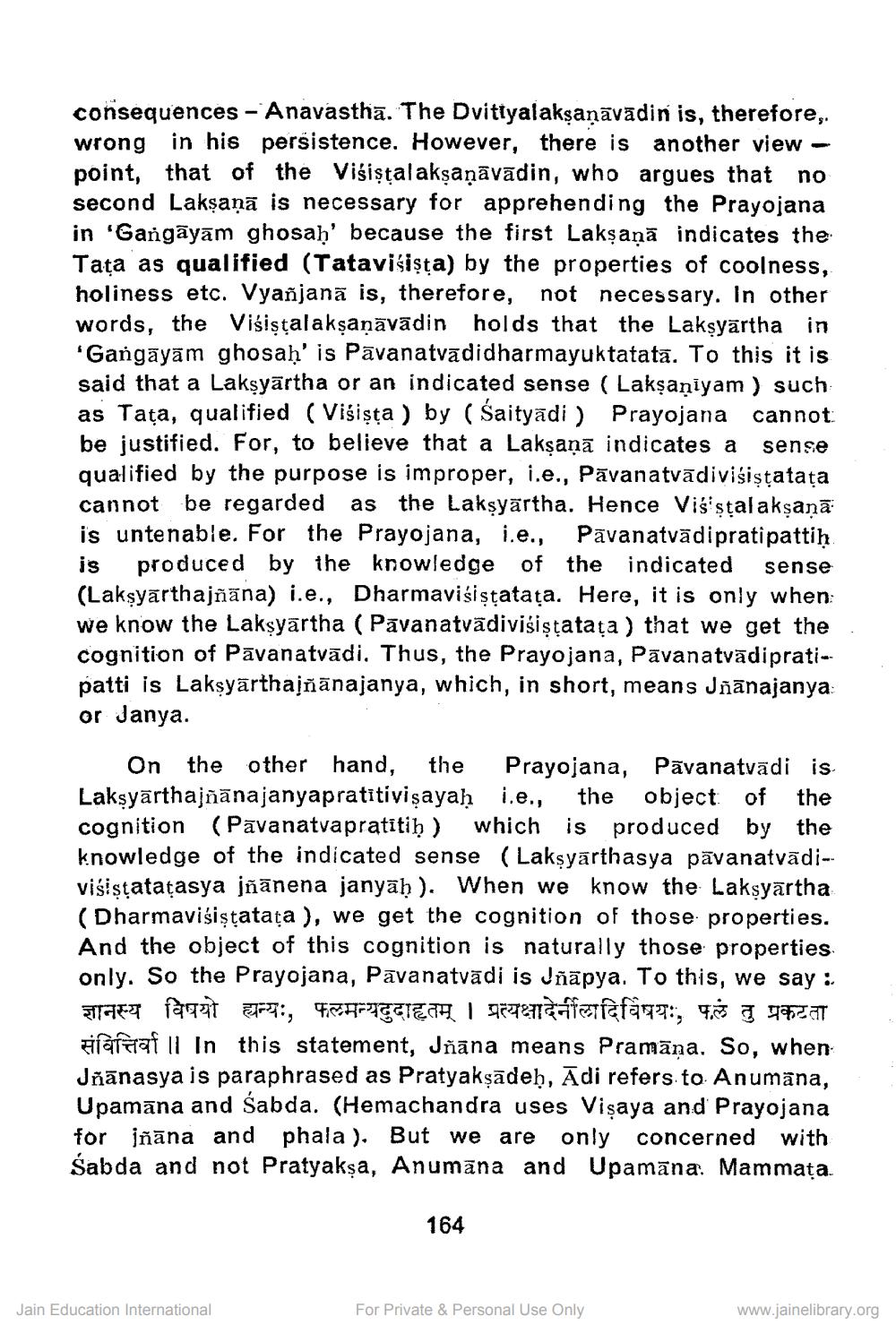________________
consequences - Anavastha. The Dvittyalaksaņāvadin is, therefore, wrong in his persistence. However, there is another view - point, that of the Visiştalaksaņāvādin, who argues that no second Lakşaņā is necessary for apprehending the Prayojana in 'Gangāyām ghosah' because the first Lakşaņā indicates the Tața as qualified (Tatavisista) by the properties of coolness, holiness etc. Vyañjanā is, therefore, not necessary. In other words, the Viśistalakṣaṇāvādin holds that the Lakşyārtha in 'Gangāyām ghosah' is Pāvanatvādidharmayuktatatā. To this it is said that a Laksyārtha or an indicated sense ( Lakşaņiyam ) such as Tața, qualified ( Višişta ) by (Saityādi) Prayojana cannot: be justified. For, to believe that a Laksaņā indicates a sense qualified by the purpose is improper, i.e., Pāvanatvādivisistatata cannot be regarded as the Laksyārtha. Hence Višistalaksaņā is untenable. For the Prayojana, i.e., Pāvanatvādipratipattih is produced by the knowledge of the indicated sense (Lakşyārthajñāna) i.e., Dharmavišiştataţa. Here, it is only when we know the Laksyārtha (Pāvanatvādivisişğatata) that we get the cognition of Pāvanatvādi. Thus, the Prayojana, Pāvanatvādipratipatti is Laksyārthajñānajanya, which, in short, means Jñānajanya or Janya.
On the other hand, the Prayojana, Pāvanatvādi is. Laksyārthajñānajanyapratitivişayah i.e., the object of the cognition (Pāvanatvapratitih) which is produced by the knowledge of the indicated sense (Lakşyārthasya pāvanatvādivisistatatasya jñānena janyāh). When we know the Laksyārtha (Dharmaviśiştataţa ), we get the cognition of those properties. And the object of this cognition is naturally those properties only. So the Prayojana, Pāvanatvādi is Jñāpya. To this, we say :. ज्ञानस्य विषयो ह्यन्यः, फलमन्यदुदाहृतम् । प्रत्यक्षादेर्नीलादिविषयः, फलं तु प्रकटता pathaf ll in this statement, Jñana means Pramāna. So, when Jñānasya is paraphrased as Pratyakşādeh, Ādi refers to Anumana, Upamāna and Sabda. (Hemachandra uses Vişaya and Prayojana for jñāna and phala). But we are only concerned with Sabda and not Pratyaksa, Anumana and Upamāna. Mammata.
164
Jain Education International
For Private & Personal Use Only
www.jainelibrary.org




